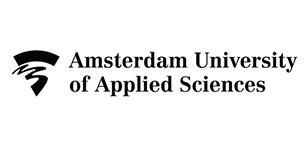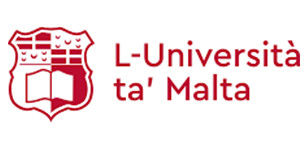Study In Europe

Studying in Europe provides international students with a transformational education. Europe's multitude of cultures makes your learning experience more than just being in the classroom, offering firsthand encounters with different traditions, languages, and outlooks. There are many top colleges in the world, located in Europe, famous for their strict academic requirements and technologically advanced laboratories.
An opportunity to study in Europe grants you easy access to continents packed full of varying landscapes and historical artifacts. In addition, a European degree has global acceptance and grants access to various industries with diverse career prospects.
You can further picture yourself upon graduation holding a worldwide-sought after qualification, having international experience, and having cultural sophistication, making you a powerful contender in an interconnected job market. European universities are particularly known for their strong bond with major companies that provide placements as well as internship positions, which help you advance in your career.
The deeper you go, the more scholarships, diverse program options, and lively student communities you will find on the continent.
Why study in Europe?
From time-honored institutions deep in age and tradition to ultra-modern programs that pioneer progress, the African continent is awash with educational alternatives to quench varied interests and ambitions.
Away from the class, the lively history, art, cuisine, and languages of Europe form a rich maze for personal development. Focusing on critical thinking, interdisciplinary study, and global involvement, Europe represents an intellectual curiosity and academic excellence flagship, thus providing an attractive option to those interested in a transformative educational voyage.
There are different reasons that motivate you to study in Europe; for example, it may be a high learning potential that you can see in the lecturers or a kind of education that is strictly tied to practices. Here are just a few:
-
Academic Excellence:
Among the famous and oldest universities in the world are Oxford, Cambridge in Europe, the Sorbonne, and Heidelberg. These institutions provide demanding academics, eminent teachers, and ground-breaking research.
- Diverse Range of Programs
Whether you may be engaged in engineering, medicine, the humanities, art, or something else completely, Europe has a program for you. The continent provides a wealth of specialized programs and learning opportunities.
-
Cultural Immersion
Study in Europe opportunity is to go out of your comfort zone and experience a new culture. In Europe, one could find a wealth of history and a diversity of languages, as well as a highly developed art sphere, and be able to develop personally and understand humanity better.
-
Travel Opportunities
The size of Europe is small, which makes travelling and studying various cultures easily. On weekends, you can visit historical towns, cozy villages, and captivating scenery.
-
Career Advantages
A European degree is recognized globally as a testimony of excellence in the undergraduate years and can unlock many attractive job positions. In addition to that, learning abroad strengthens traits such as autonomy, flexibility, and intercultural communication that employers are more often in need of today.
-
Personal Development:
Living in a new country fosters independence, resourcefulness, and self-awareness. You will learn to navigate new challenges, make new friends, and discover more about yourself.
-
Affordability
While costs can vary depending on the country and program, some European universities offer tuition fees that are lower than those in other parts of the world. Additionally, there are scholarships and financial aid opportunities available to international students.
Total Cost of Study in Europe
Studying in Europe provides an unequal chance for academic, personal, and cultural dispensation. Glorified for its renowned universities, cutting-edge research centers, and diverse cultural settings, Europe invites students of all backgrounds who wish to broaden their minds and increase their knowledge. The cost of studying in Europe can vary greatly depending on several factors, including:
1. Your nationality
The EU/EEA citizens mostly enjoy cheaper tuition, or sometimes even free tuition, at public universities in some countries. Generally, students from outside the EU/EEA pay higher tuition fees.
2. The country you choose
Some countries, e.g., Germany, Finland, and Norway, have free and very low tuition charges for public universities, unlike others, such as the UK and Switzerland, which have higher fees.
3. The type of university
Most of the time, public universities have lower tuition than private universities.
4. The level of study
Graduate programs are, on average, more expensive than undergraduate programs; doctoral programs may be even more expensive.
5. Lifestyle
Your lifestyle, including housing, food, transportation, and other living expenses, can vary extensively by city and your preferences.
Here's a rough estimate of tuition fees for non-EU/EEA students:
|
Level |
Total tuition fee |
|---|---|
|
Bachelor's degree |
€4,000-18,000 (~US$4,700-21,070) per year |
|
Master's degree |
€6,000-23,000 (~US$7,000-26,600) per year |
Beyond tuition, living expenses can range from €700-€1,500 (~US$800-US$1,700) per month, depending on your lifestyle and chosen city.
Education System of Europe
The backbone of the European higher education system is the Bologna Process, which aims to lay down a common framework for higher education in the participating European countries. This framework encourages mobility and exchange in academia by creating a comparative basis for degrees such as the Bologna degrees, such as bachelor, master, and doctorate degrees.
Furthermore, the European Credit Transfer and Accumulation System (ECTS) helps to recognize the acquired academic credits in a European country that can be transferred and recognized in another European country.
The education system in Europe is of varying kinds, and every state has its own distinct structure as well as approach. However, there are some general trends that can be observed: There were ten people who went with us.
-
Pre-primary education
This is not a must in all countries, but it is happening more frequently. Typically, it caters to children whose ages are between 3 and 6.
-
Primary education
This is general throughout the world. And it usually takes six years to complete your primary education.
-
Secondary education
This also applies to all countries; however, the length and structure can be different. It is commonly divided into lower and upper secondary education, with the latter having more specialization.
-
Higher education
This is not a must, but it is becoming essential for new entrants to the job market. It mostly includes bachelor's, master's, and doctoral degrees.
Scholarship opportunities in Europe
The scholarship opportunities in Europe are quite plentiful and varied, accommodating students from different life and learning backgrounds. Here's a breakdown of some prominent scholarship options to consider: He was considered an assisted suicide helper.
1. European Union Scholarships:
Erasmus Mundus Joint Master and Doctorate Degrees are prestigious scholarships for students taking joint Master and PhD degree programs. These programs are run by universities in different European countries. The bursary will offset not only college tuition but also hostel and travel fees.
-
Marie Skłodowska-Curie Actions
The fellowships are available to all levels of the careers, including early-stage researchers, and established scientists. They sponsor the development of research stays, training, and careers in Europe.
-
Horizon Europe
Under the EU research and innovation framework the researchers and innovators can access various funding types which include doctoral and postdoctorate financial aid.
2. National Scholarships
The European scholarship programs for international students are different for each European country. These scholarships can be merit- or need-based ones or those awarded for a specific field.
Some prominent examples include:
-
Deutschland Scholarship in Germany
This scholarship is awarded to the best non-Indian students from all fields of study and provides €300 per month as a scholarship.
-
The Holland Scholarship in the Netherlands
Non-EU/EEA students with excellent grades can apply for this scholarship in order to complete their master's degree in the Netherlands.
3. University Scholarships
Many European universities provide their own scholarships to attract overseas students. These are merit-based, need-based, or program/department-specific scholarships. One of the most important things to do is study the scholarship opportunities available at the universities of interest to you.
Job opportunities after studying in Europe
Job opportunities in Europe After studying, it can be quite promising, but several factors influence your chances: Any economic phenomenon is the other side of the other side of the other side.
1. Your Degree and Skills
In-Demand Fields including fields include those in Europe that have high demand, such as STEM (Science, Technology, Engineering, and Mathematics), healthcare, renewable energy, and digitalization.
Specialization
You become more marketable when you have a set of skills in your field that render you unique in the market.
Language Skills
Local language proficiency, particularly English, increases your employment potential.
2. Your Nationality and Visa
Non-exceptional processes disregard discriminating limits of integration and keep an indifferent attitude to the strange regularities of the elementary process in the randomness of time intervals.
EU/EEA Citizens
These people benefit from freedom of movement within the Schengen area, which also means that they can live and work in any state without needing to get any additional permits.
Non-EU/EEA Citizens
The only thing you need are work visas, which can be obtained more easily when you already have a job offer. Check the visa requirements of a particular country for clarity.
3. The Country and Industry
This couple is emphatically against limited immigration to the United States. Strong economies, including Germany, France, and the Netherlands, have strong employment markets with diversified offers.
Emerging industries look into potential in sectors like green technology or fintech. For research Country-Specific trends, you can consult government websites as well as job boards for details about specific industries and respective job spaces.
4. Networking and internships
Network actively by visiting career fairs, networking with university alumni, and utilizing professional sites such as LinkedIn. Seek internships that offer real life experience, connections, and employment opportunities.
Resources for job hunting:
-
EURES Job Portal
Provides job openings and career guidance across Europe to suit skill sets and nationalities.
-
Europass
It enables the creation of CVs and cover letters adjusted to European job markets.
-
National Job Boards
Every country has its own job boards, for example, Monster France or StepStone Germany.
- University Career Services
You can take advantage of your university's career resources and job postings.
Processing steps to study in Europe
You can prepare well for your study abroad experience in Europe, and you will fully take advantage of your educational experience abroad. The processing steps for studying in Europe can vary depending on several factors, including The processing steps for studying in Europe can vary depending on several factors, including:
1. Your nationality:
Mostly, the process for EU/EEA students is not that tough in comparison to non-EU/EEA.
2. The country you choose
The processing steps also change since every country has its own special requirements and deadlines.
3. The level of study
Your visa process can vary depending on the level of study. Academic choices impact the application procedures adopted for undergraduates, post-graduates, and sometimes even Ph.D. degrees. These procedures may be different.
1. Research and choose:
You will have to search for programs that are related to your academic interests and career goals. Additionally, you can take the program structure, faculty expertise, and university status into consideration. After that, choose the best-fitting countries based on your preferred program, language skills, budget, and desired lifestyle.
2. Meet entry requirements
The most important requirements are your transcripts, and you also have to pass some tests like the SAT/ACT. Then, prove the ability in the mode of communication, where tests like IELTS or TOEFL are usually used. And present evidence that you will have enough money to cover tuition fees, living expenses, and health insurance.
3. Application Process
You can now contact program coordinators for details on the application and deadlines. Then get the needed documents, such as transcripts, recommendation letters, essays, and language certificates. Apply to selected universities as described by them and in due time.
4. Visa Application (if applicable)
Non-EU/EEA citizens, you can conduct research on and apply for the appropriate student visa for the country of your choice. This usually entails accompanying documents and charges. EU/EEA citizens may require registration or residence permits, which are dependent on the country and duration of study.
5. Acceptance and Pre-Departure
Wait for decisions as universities process applications and send out letters offering admission or not. Choose the offer of your choice and undergo the enrollment process. Secure accommodation as per the requirements and arrange the insurance as necessary. Book flights and prepare the required travel documents according to the visa requirements.
Non-EU/EEA citizens likely need student visas. Research specific country requirements and deadlines to study in Europe.
Research websites like Study in Europe, national portals, and university sites. Consider interests, goals, and budgets.
It generally depends on the country, program, and job market. EU citizens have free movement, while non-EU citizens may need work permits. Research the regulations carefully.
Documents that you need for a visa vary by country but often include passports, acceptance letters, proof of funds, health insurance, and potentially more.
Admission requirements include academic transcripts, standardized tests (like SAT/ACT), language proficiency tests (like IELTS/TOEFL), and potentially recommendation letters and essays.



